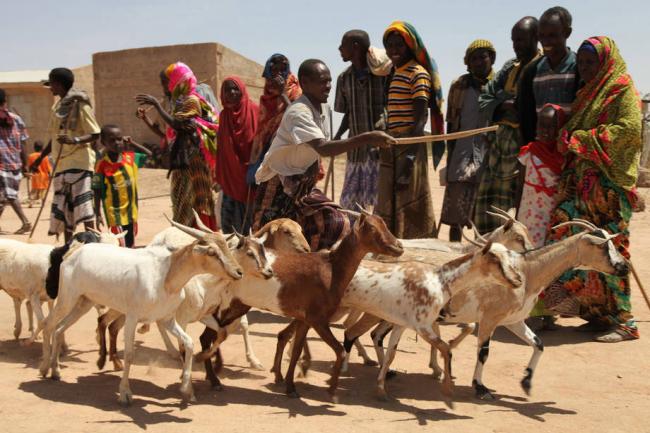
Agriculture support ‘critical’ for Horn of Africa as region braces for another hunger season
According to the agency, nearly 12 million people across Kenya, Somalia, and Ethiopia face harsh food conditions, and are in need of emergency assistance. Families in the region also experience rising debt, low cereal and seed stocks, and low milk and meat production.
Farmers need urgent support to recover from consecutive lost harvests and to keep their breeding livestock healthy and productive at a time that pastures are the driest in years. Production outputs in the three countries are grim.
“We’re dealing with a cyclical phenomenon in the Horn of Africa,” said Dominique Burgeon, Director of FAO’s Emergency and Rehabilitation Division, stressing that timely support to farming families can significantly boost their ability to withstand the impacts of these droughts and soften the blow to their livelihoods.
The agency has already begun allocating funds to Kenya and Somalia to support emergency feed, repairs of water points, vaccinations for breeding and weak animals, and seeds and tools to plant in the spring season.
FAO is also cooperating with local officials to help countries prepare for emergencies, “especially in those areas where we know natural hazards are recurring,” said Burgeon, adding that working with the Government to further build up the ability to mitigate future shocks is a smart intervention that can significantly reduce the need for humanitarian and food aid further down the line.
Kenya currently has nearly 1.3 million people that are food insecure, and the number could increase in early 2017 due to an expected drought. To help the livestock, FAO is providing feed, water, and veterinary support and good management skills training for local officials.
Somalia has also seen two poor rainy seasons this year, with a 50 per cent below average drop in Gu cereal harvest this spring. About five million Somalis are food insecure through December 2016, including 1.1 million people in Crisis and Emergency conditions of food insecurity, a 20 per cent increase in just six months.
Meanwhile, Ethiopia is still recovering from the 2015 El Niño-induced drought, with 5.6 million food insecure people, and millions more depending on livestock herds. FAO and more than 25 non-governmental organizations and agencies reached 1.5 million households with drought-resistant seeds.
FAO reports that Somalia and Kenya are among the first to benefit from its new Early Warning Early Action Fund (EWEA), which ensures quick activation of emergency plans when there is a high likelihood of a disaster that would affect agriculture and people's food and nutrition security.
Photo: FAO/Tamiru Legesse
Source: www.justearthnews.com
Support Our Journalism
We cannot do without you.. your contribution supports unbiased journalism
IBNS is not driven by any ism- not wokeism, not racism, not skewed secularism, not hyper right-wing or left liberal ideals, nor by any hardline religious beliefs or hyper nationalism. We want to serve you good old objective news, as they are. We do not judge or preach. We let people decide for themselves. We only try to present factual and well-sourced news.







